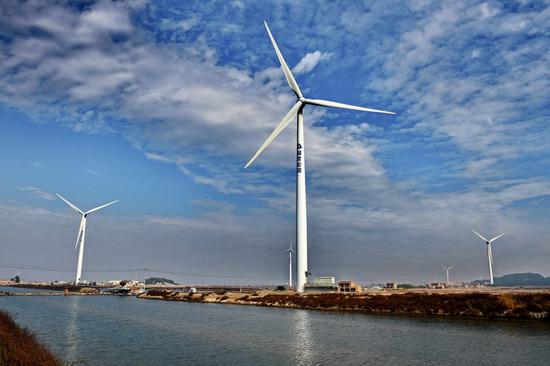China poised to achieve carbon neutrality 2060 goal: study
A study conducted by China's esteemed Peking University has revealed that the Chinese public exhibits a strong awareness of the nation's objective to achieve carbon neutrality before 2060.
Furthermore, a significant majority believe that the world's largest developing nation has the capacity to realize this ambitious and challenging target.
These findings were derived from a comprehensive 2022 survey involving 4,162 participants representing a range of diverse demographics including gender, age, location, education, income, occupation and health.
Published in October in the Journal of Environment: Science and Policy for Sustainable Development, the study delved into Chinese public awareness, policy endorsement and confidence levels concerning the carbon neutrality goal.
According to the study, 55 percent of the respondents indicated awareness of China's carbon neutrality goal, while 90 percent expressed confidence in the achievability of the target, with 59 percent asserting that it "definitely can be achieved".
People working in government, universities, research institutes, as well as students, business professionals and self-employed individuals demonstrated a notably elevated level of awareness regarding the policy goal, surpassing the survey's average awareness, it said.
It said awareness of the carbon neutrality goal is significantly and positively correlated with education level and annual household income. Respondents with a master's degree and above and high-income respondents were most likely to be aware of the goal.
Males were significantly more aware of the goal than females, and 61 percent of surveyed men know the target, compared with 49 percent for women, it said.
The study revealed that greater income levels did not correspond to increased support. Middle-income respondents showed the highest level of support, followed by lower-income respondents and then high-income respondents.
In contrast to the findings on awareness of the goal, the study indicated that a higher level of education or income did not result in a higher percentage of respondents expressing the strongest confidence level.
According to the study, individuals with middle-school or high-school education were more inclined to believe that the goal "definitely can be achieved" compared to those with some college education or a master's degree and above.
The study noted that middle-income respondents exhibited slightly greater confidence in the achievability of the goal compared to high-income respondents.
Considering the significant challenges facing China as it strives to reach its targets of peaking carbon dioxide emissions before 2030 and achieving carbon neutrality before 2060, public perception is crucial in attaining this goal, said Wang Binbin, the study's primary author.
While the United States and the European Union have respective windows of 43 and over 70 years between their carbon peak and neutrality, China faces a significantly tighter deadline of just 30 years, the shortest in history for such a transition, underscored Wang, who is an associate research professor and founder of Climate Future Global Innovation Lab (C Force) from Peking University's Institute of Carbon Neutrality.
Expressing optimism about China's commitment to the carbon neutrality goal, she highlighted the government's dedication in formulating comprehensive policies and action plans to drive all industries towards these objectives.
"However, relying solely on governmental efforts is insufficient," she said.
She emphasized that the study's outcomes are poised to assist policymakers in policy implementation, catalyze grassroots initiatives and enhance public communications among various stakeholders.

